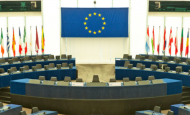EU-Supported Palestinian NGOs and the October 7th Hamas Massacre
Publicly available information shows that at least nine Palestinian NGOs, recipients of millions of euros of EU taxpayer funds, have justified and celebrated the October 7th terror attacks, or denied the atrocities.








